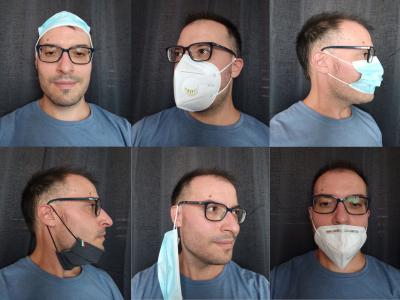Image Processing
WITH the advancement in sensor technology, huge amounts of data are being collected from various satellites. Hence, the task of target-based data retrieval and acquisition has become exceedingly challenging. Existing satellites essentially scan a vast overlapping region of the Earth using various sensing techniques, like multi-spectral, hyperspectral, Synthetic Aperture Radar (SAR), video, and compressed sensing, to name a few.
- Categories:
 1567 Views
1567 ViewsWITH the advancement in sensor technology, huge amounts of data are being collected from various satellites. Hence, the task of target-based data retrieval and acquisition has become exceedingly challenging. Existing satellites essentially scan a vast overlapping region of the Earth using various sensing techniques, like multi-spectral, hyperspectral, Synthetic Aperture Radar (SAR), video, and compressed sensing, to name a few.
- Categories:
 33 Views
33 ViewsWITH the advancement in sensor technology, huge amounts of data are being collected from various satellites. Hence, the task of target-based data retrieval and acquisition has become exceedingly challenging. Existing satellites essentially scan a vast overlapping region of the Earth using various sensing techniques, like multi-spectral, hyperspectral, Synthetic Aperture Radar (SAR), video, and compressed sensing, to name a few.
- Categories:
 450 Views
450 ViewsWITH the advancement in sensor technology, huge amounts of data are being collected from various satellites. Hence, the task of target-based data retrieval and acquisition has become exceedingly challenging. Existing satellites essentially scan a vast overlapping region of the Earth using various sensing techniques, like multi-spectral, hyperspectral, Synthetic Aperture Radar (SAR), video, and compressed sensing, to name a few.
- Categories:
 301 Views
301 ViewsWith the advancement in sensor technology, huge amounts of data are being collected from various satellites. Hence, the task of target-based data retrieval and acquisition has become exceedingly challenging. Existing satellites essentially scan a vast overlapping region of the Earth using various sensing techniques, like multi-spectral, hyperspectral, Synthetic Aperture Radar (SAR), video, and compressed sensing, to name a few.
- Categories:
 323 Views
323 ViewsWith the advancement in sensor technology, huge amounts of data are being collected from various satellites. Hence, the task of target-based data retrieval and acquisition has become exceedingly challenging. Existing satellites essentially scan a vast overlapping region of the Earth using various sensing techniques, like multi-spectral, hyperspectral, Synthetic Aperture Radar (SAR), video, and compressed sensing, to name a few.
- Categories:
 385 Views
385 ViewsThe Ways To Wear a Mask or a Respirator Database (WWMR-DB) is a test database that can be used to compare the behavior of current mask detection systems with images that most closely resemble the real case. It consists of 1222 images divided into 8 classes, depicting the most common ways in which masks or respirators are worn:
- Mask Or Respirator Not Worn
- Mask Or Respirator Correctly Worn
- Mask Or Respirator Under The Nose
- Mask Or Respirator Under The Chin
- Mask Or Respirator Hanging From An Ear
- Mask Or Respirator On The Tip Of The Nose
- Categories:
 2981 Views
2981 ViewsComputer-assisted intraoperative intraocular lens (IOL) positioning and alignment is a valuable study. It is important to precisely position and align the axis of IOL during surgery to achieve optimal post-operative astigmatism correction. The cataract surgery dataset is proposed in the research paper “Computer-aided Intraoperative Toric Intraocular Lens Positioning and Alignment During Cataract Surgery”.
- Categories:
 1755 Views
1755 Views
TEST6
- Categories:
 121 Views
121 Views




